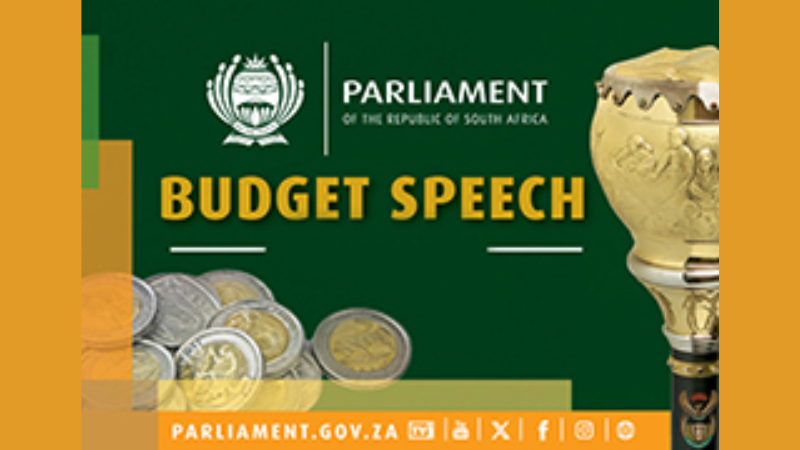
Minister Announces R14 Billion for TVET Colleges
In her department’s budget vote, the Minister of Higher Education and Training, Ms Nobuhle Nkabane (ANC), allocated R14 billion of the R150 billion departmental budget to technical and vocational education and training (TVET) colleges. This marks an increase from R13.1 billion in 2024, with projections indicating a further rise to R14.7 billion next year.
Explaining the significance of TVET colleges in the economy and their role in addressing youth unemployment, the Minister stated: “We remain committed to repositioning and rebranding TVET colleges as institutions of choice for various careers of our young people. For too long, vocational skills were seen as second-class – but today, we are saying loud and clear: becoming an artisan is not a backup plan – artisanal training and development is the backbone of a thriving economy of the 21st century. It is cool to be an artisan of the 21st century.”
Tackling Youth Unemployment
The Minister also announced a renewed focus on youth unemployment, revealing that the department: “is also committed to repositioning and transforming the National Skills Fund to target youth unemployment in line with the Medium-Term Development Plan. The fund will continue its support to the Human Resource Development Council of South Africa and the National Skills Authority in steering national skills and human resource development strategies.”
To meet the National Development Plan target of producing 30,000 artisans by 2030, the National Skills Fund will continue to invest in artisan development. She reported significant progress, stating: “The skills development system will continue to prioritise key areas such as artisan development and workplace-based learning programmes. Over the past five years, South Africa has produced more than 95 000 qualified artisans, many of whom are young people, largely through the Sector Education and Training Authorities.”
Committee Backs Budget as Transformative Tool
Chairperson of the Portfolio Committee on Higher Education, Mr Tebogo Letsie, expressed strong support for the budget vote: “As a committee, we support this budget vote as a transformative instrument, a tool of justice and a pillar of nation-building.”
He emphasised that the budget reflects political commitment and aligns with the Freedom Charter’s demand for open access to education: “This budget is a political commitment, and a clarion call rooted in the Freedom Charter demand for the doors of learning and culture to be open to all.”
He stressed the importance of education in addressing social challenges: “Education is the most powerful instrument to fight poverty, inequality and unemployment.” Mr Letsie also noted the importance of holding institutions accountable: “The committee would continue to hold higher education institutions accountable to ensure that their resources are used efficiently, effectively and transparently to deliver the vision of an inclusive and accessible higher education sector.” However, he issued a warning: “The committee would not afford the discord between policy ambitions and budget realities.”
OPPOSITION VOICES CONCERNS AND REJECTION
MK Party: No Confidence in Leadership
Mr Mnqobi Msezane (MK) rejected the budget outright: “Principally, we demand a free, quality and decolonised education system, which is why we unequivocally reject this budget.” He also expressed doubt over the leadership’s integrity: “We don’t have confidence in the ministry to oversee this budget and in its accounting officer, the DG, who is alleged to be involved in fraud and corruption, but who has not be suspended or being investigated for such allegations.”
DA: A Budget Without Integrity
Ms Letta Maseko (DA) criticised the moral foundation of the budget: “It’s not just numbers on the paper – it’s a declaring of intent, it’s a moral document. It speaks to what the government values and what it doesn’t.” She accused the department of lacking commitment to its stated values: “We are here today not to debate technical estimates, we are here because the very integrity of our higher education has been systemically eroded by incompetence, deception and unchecked abuse of power.”
EFF: Fix NSFAS or Scrap It
Mr Sihle Lonzi (EFF) called for urgent reform: “Fix NSFAS or eradicate it entirely: why this entity pays to pay students, blacklist corrupt board members at SETAs and its CEOs rather than have a situation of them being suspended from one SETA only to serve in another.”
He further questioned state priorities: “You spend billions bailing out Eskom, why withhold the certificates of students who need them to get employment?” His criticism centred on inefficiencies and a lack of trust: “We don’t support this budget because we have no certainty that the R150.2 billion allocated to the department is going to be used correctly, why? Because NSFAS has a middleman of a middleman of a middleman.”
IFP: Lack of Transparency
Mr Sanele Zondo (IFP) also voiced concerns: “South Africans have denied transparency on what is happening in the ministry.” He added: “The legislative arm of the state remains dissatisfied with the accountability and justifications provided by the minister regarding the appointment of boards of SETAs.”
PA: Academic Autonomy Must Not Undermine Accountability
Mr Ashley Sauls (PA) criticised higher education institutions for evading oversight: “We can’t spend 90% of the budget to higher education institutions that will tell us about academic autonomy while they continue to appoint foreign nationals overqualified South African academics.” Despite these concerns, he confirmed: “We will continue to hold you accountable without fear or favour.”
ActionSA: Ministry in Crisis
Ms Malebo Kobe (ActionSA) stated her party's opposition to the budget due to internal disarray: “We are not supporting the budget because of the chaos embedded in the ministry. At the helm of this disaster is the minister who embodies indifference.” She proposed specific reforms: “Overhaul NSFAS leadership to restore trust, transparency and efficiency.”
ACDP: Budget Increase Hides Structural Flaws
Mr Wayne Thring (ACDP) pointed out that a nominal 4.8% budget increase masks deeper systemic issues: “We call for increased intervention to remove the stubborn stigma associated with technical and vocational education and training colleges despite their potential to drive economic inclusion.”
Abel Mputing
Original article from the Parliament of the Republic of South Africa


